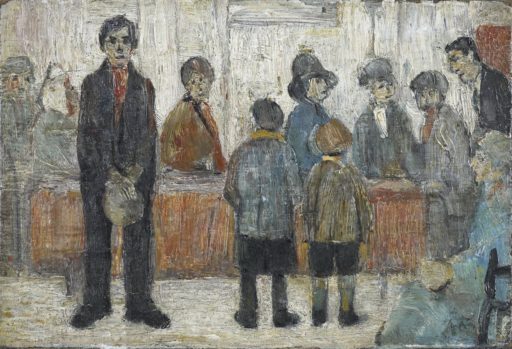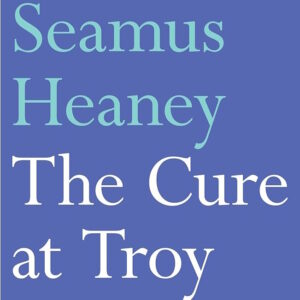I fear there’s some longstanding yet unwritten rule among writers not to review a book one’s already blurbed. If so, I’m about to break it. For what it’s worth, the back cover of Marilyn McEntyre’s Dear Doctor: What Doctors Don’t Ask, What Patients Need to Say, published this month by Broadleaf Books, includes much-deserved praise from three writers, one of whom is me. I meant those words when I wrote them and stand by them today, but rereading her book now is a rather different experience than my first encounter.
The book didn’t change. I did. 2020 was, of course, a bad year for millions of people afflicted with COVID-19, with sufficient spikes in morbidity and mortality to expose the loose and creaky seams of what passes for health care in the United States. I was fortunate to dodge COVID infection and, as a health care worker, to now be fully vaccinated, but it wasn’t a virus that changed my perspective on what McEntyre has to say. My year was marked by other health issues: the inexorable progression of my Parkinson’s Disease, the surgical removal of a cancerous prostate, and worsening lumbar spinal stenosis that now makes this once avid backpacker unable to walk a neighborhood block without pausing to crouch or bend over in an attempt to relieve the pain. All three conditions run in my family, so their arrival in my life isn’t a complete surprise, but I’m bewildered by my growing list of doctors, medications, treatments, and tests. I’m supposed to ask questions of my patients and their parents. Now I’m the one being quizzed. I’m used to being the one who listens, examines, reviews, deliberates, and proposes next steps. Now I’m most decidedly the patient and feeling rather like a paratrooper trapped behind enemy lines without a map.
Not that I think of my doctors, nurse practitioners, nurses, and therapists as enemies. They have proved consistently kind, competent, and responsive, though they work in a health care “system” that punishes them — especially the physicians — for using their most effective therapeutic tool: time with the patient. In the forty years since Paul Starr wrote The Social Transformation of American Medicine, the absorption of a once sovereign profession into a vast corporate industry has only accelerated, with productivity, profit, and Press Ganey patient satisfaction scores as the true measures of success. It’s challenging enough for me, a doctor, to navigate the medical-industrial complex. I tremble at the thought of my patients, particularly the poor and marginalized against whom this and nearly every other system is stacked, trying to do the same.
I’m not here to propose sweeping policy changes, having none to offer. Neither does McEntyre, which suits me fine. I’m suspicious of anyone claiming to have the big fix, the grand solution. Any single remedy for so bafflingly complex a problem comes with consequences — not always unintended — all but certain to privilege some at the expense of others. What McEntyre brings to this messy table are two decades of experience teaching literature to medical students and other health care professionals in training, as well as the wisdom garnered from her own encounters with physicians as their patient. Befitting the author of the justly celebrated Caring for Words in a Culture of Lies, her approach is highly practical, offering suggestions on how to steward that most precious resource — language — within a deeply flawed institution.
Written as a series of letters to physicians who have not yet had youthful idealism and compassion beaten out of them in the course of their training, each chapter examines facets of the doctor-patient relationship: the strangeness of exposing one’s life and body to a stranger, the alienating effects of medical jargon, and the awkward conversational dance around matters often key to a patient’s understanding of health — diet, spirituality, non-biomedical therapies, money, and moments of beauty. McEntyre poses questions for her health care providers to ponder, modeling for her readers how do likewise when they are in the patient’s seat or on the exam table. She concludes with a “counter-questionnaire,” rather like those papers and checklists on a clipboard one fills out in the waiting room. Her goal is to help both patient and provider “know on what terms we may ‘partner’ for health and healing.” Far from multiple choice or check-the-box questions, these interrogate substantive matters demanding explanation and nuance: What’s the difference between healing and curing? How can we remain focused on who I am as well as what is wrong with me? How do you help patients who are afraid? Getting my doctor to answer these before I’m called back to the examining room seems highly unlikely, but having one or two in mind to ask when face to face is helpful.
What I bring to McEntyre’s book upon rereading is a fuller sense of what it means to be a patient (from the Latin pati, “to suffer”) and — given the realities of my aging, imperfect body and a cumbersome, imperfect medical system — how to be patient. Patience certainly grows thin while waiting for the insurance company to decide whether I may receive a recommended treatment. Patience during those few precious minutes with my doctor requires listening to what she says while making sure she listens to me. I now know what it means to live with deep uncertainty, with an awareness that some things will not get better while others will surely grow worse. I know how easily I can be reduced to my “problem list,” each item of which comes with a medication or procedure and its attendant side effects, known failure rates, and inherent limitations. I know far better that illness is as much a spiritual matter as a biomedical one.
I knew all these before, of course, but intellectually and with a healthy body. Chronic illness can teach us, in Vassar Miller’s words, to fall:
…not on our knees, but on our hearts, A posture humbler far and more downcast; While Father Pain instructs us in the arts Of praying.
I was a pediatrician before becoming a parent. After our first son was born, I noticed two changes in my practice. First, I grew less dogmatic, less sure I had the answer. The single mother whose baby won’t sleep wants to know what will work for her tonight, not what the latest journal articles say. Second, I felt more deeply for my sick patients and their worried parents, having gained context for greater compassion. I don’t think I was callous beforehand, but fatherhood taught me how vulnerable we become through our children. “Father Pain” and his associates are now teaching me new, difficult lessons. Strangely enough, each hard-won insight feels more like a birth than a death, as if I’m more in need of a doula than a palliative physician. I’m grateful for Marilyn McEntyre’s gentle and generous assistance as I continue in this rigorous curriculum.
Brian Volck is a pediatrician and writer living in Baltimore. He is the author of a poetry collection, Flesh Becomes Word, and a memoir, Attending Others: A Doctor’s Education in Bodies and Words. His website is Brianvolck.com





